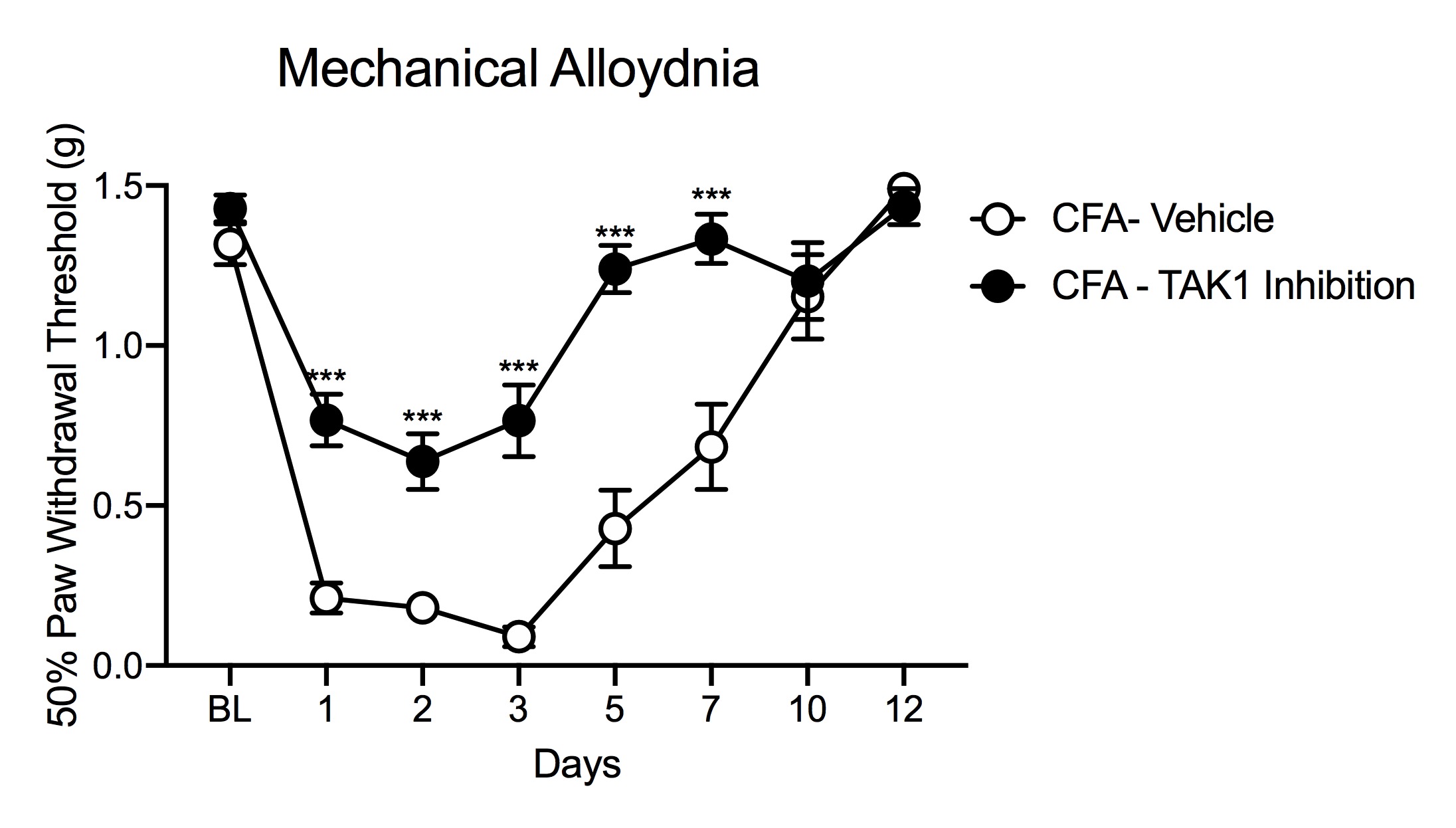Chronic Pain
Delivering novel non-opioid based analgesics
Chronic Pain
Millions of people suffer from chronic pain syndromes each year
Chronic pain is a prevalent health concern, affecting up to 100 million people and carrying an economic burden up to $560 billion annually in the US alone, yet treatment options remain limited. Over-the-counter non-steroidal anti-inflammatory drugs (NSAIDs) are short-acting and fail to alleviate severe chronic pain and carry serious safety concerns regarding gastrointestinal events. The more recently improved COX-2 inhibitors (e.g., Celebrex) also carry serious safety concerns such as serious risks of heart attack and stroke. Similarly, longer-acting centrally-targeted therapies such as opioids generally have poor efficacy and produce serious side effects regarding altered mental state, high risk of addiction, and respiratory depression. Thus, there is a high unmet need for alternatives to current treatment options for patients suffering with chronic pain.
How our technology can be applied
TAK1 as a central mediator in chronic pain
One of the main drivers of chronic neuropathic pain is inflammation following tissue injury or nerve injury caused by increased levels of cytokines such as tumor necrosis factor α (TNF), and a positive correlation exists between TNF levels and pain intensity. TNF can bind to its TNFR1 receptor located on the terminals of primary afferent nociceptors to directly increase their activity, and can also stimulate pro-inflammatory cytokine production and immune cell activation.
Our preclinical work has identified TGFβ-activated kinase 1 (TAK1) as a key signaling element in the TNF-mediated pro-pain response pathway. TAK1 plays a crucial role in facilitating activation of protein kinase-mediated signaling pathways implicated in the pathogenesis of chronic pain processes, and as a result has emerged as a novel target for regulating chronic pain and inflammation linked to enhanced TNF signaling. TAK1 plays a crucial role in facilitating activation of protein kinase-mediated signaling pathways implicated in the pathogenesis of chronic pain processes, and as a result has emerged as a novel target for regulating chronic pain and inflammation linked to enhanced TNF signaling. Our technology platform has discovered a highly potent selective inhibitor of TAK1 (EYD-001) for the treatment of chronic pain syndromes.

Figure 1. Compared to mice receiving vehicle, those receiving TAK1 inhibitor established reduced mechanical sensitivity following CFA induction.
Benefits of Our
Application
TAK1 targets inflammation
underlying chronic pain syndromes
TAK1 inhibition reduces
cytokine-induced nociceptor activity
Non-opioid based targeted
therapy for the treatment of pain
Additional information and resources
Our Technology
First selective orally bioavailable inhibitors of TAK1 for the treatment of Chronic Pain
Our Company
EydisBio is a small biotech located in Durham, North Carolina. Originally created as a spinout of Duke University, EydisBio has gone on to become a leader for the development of selective and potent small molecule inhibitors of disease relevant kinases.
Our Team
Our team is composed of experienced pharmacologists, chemists, and biologists who leverage their years of industry experience to advance small molecule inhibitors into clinics.
"*" indicates required fields
